Alongside those games, loosely describable as "role playing games", another type of game emerged – the so-called "god game" or "sim game" (sim being short for simulation) where you, the player, acted like a god who is in charge of a world and could make life heaven or hell for the (virtual) inhabitants. Early examples were based on reality and often used historical settings so you could build your own version of ancient Roman or Egyptian civilisation, for example.
The 1982 Utopia for the Mattel Intellivision game console was probably the first such game. This was followed in 1989 by the PC-based Populous which spawned a series of which the latest incarnation was produced in 2007, illustrating the enduring nature of this type of game. Civilisation followed in 1991 and it, too, has had a series of very successful sequels (the latest being only last year).
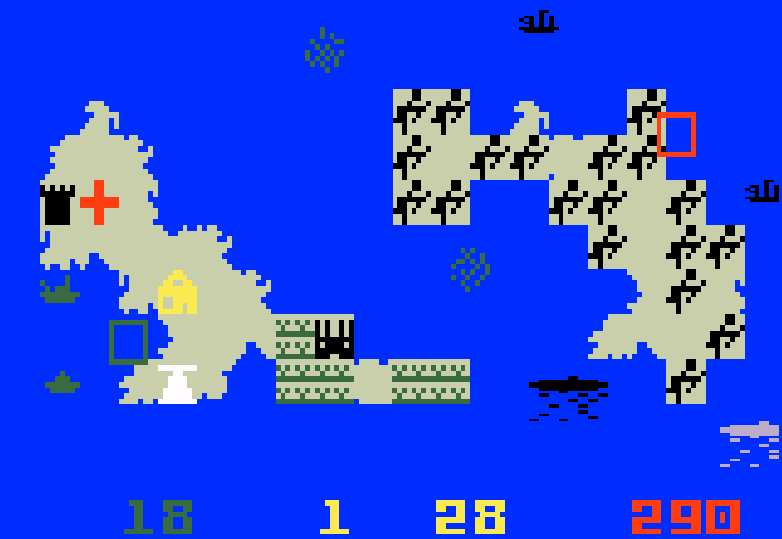 | The Utopia game for Mattel, 1982 |
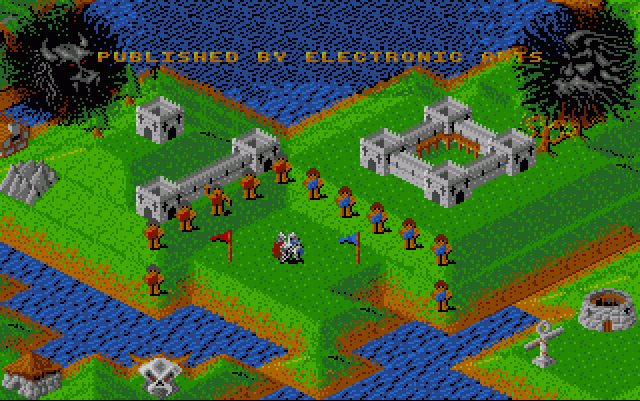 | The Populous game for PC, 1989 |
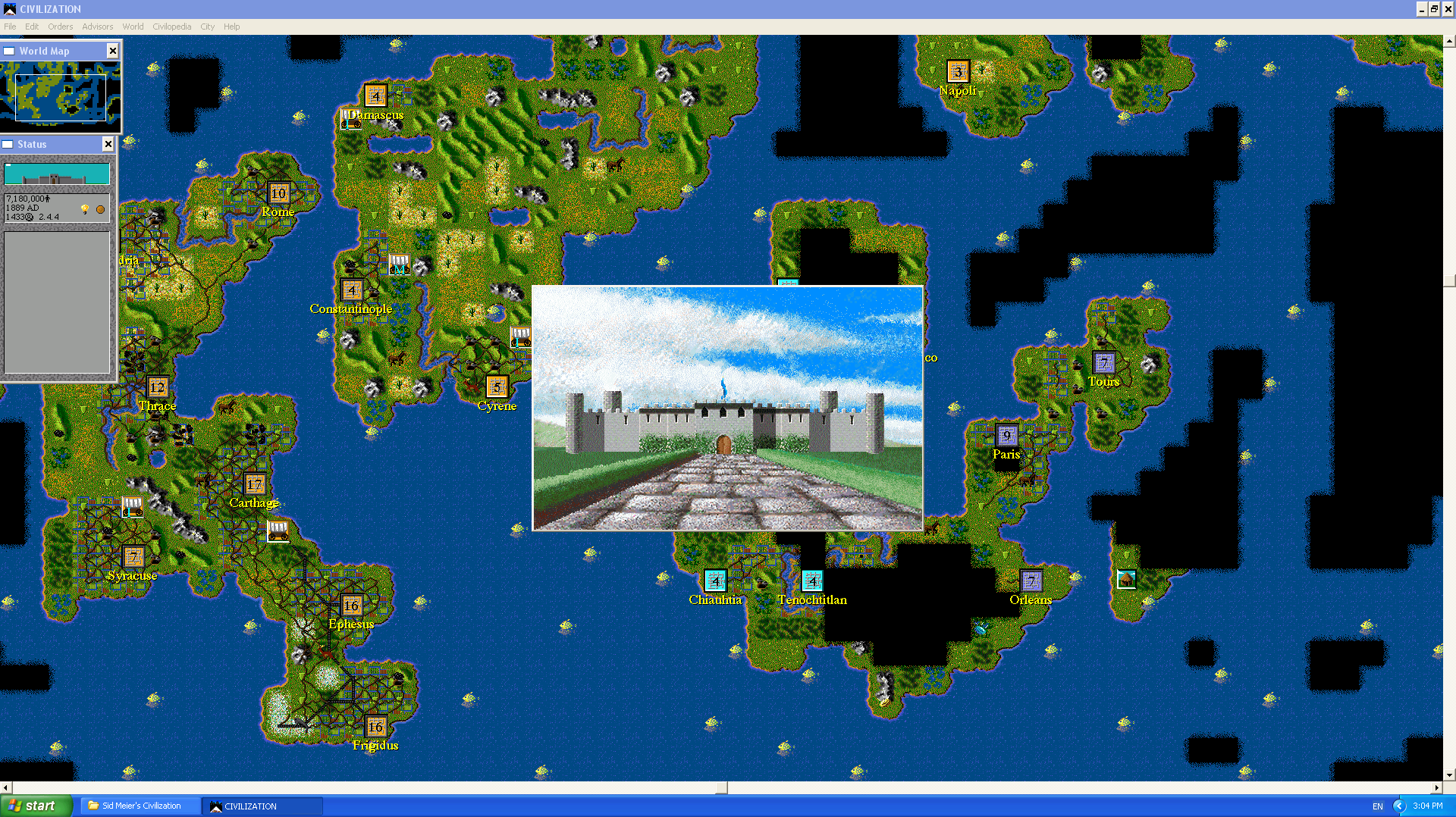 | The Civilisation game for PC, 1991 |
It wasn't long before this type of game branched off into a more specialist realm typified by titles like Railroad Tycoon and Rollercoaster Tycoon, and into the more fantastic with titles like Black & White (2001, where you truly do play a god and have an animal-like "pet" who you use to entertain and subdue your people, and you have the "Hand of God", which can move or form the world, and even grab villagers - generally a frightening experience for them) and Alien Nations (1999 – where you direct the fortunes of one of three alien races while the computer deals with the other two – eventually warfare breaks out and you have to handle that as well).
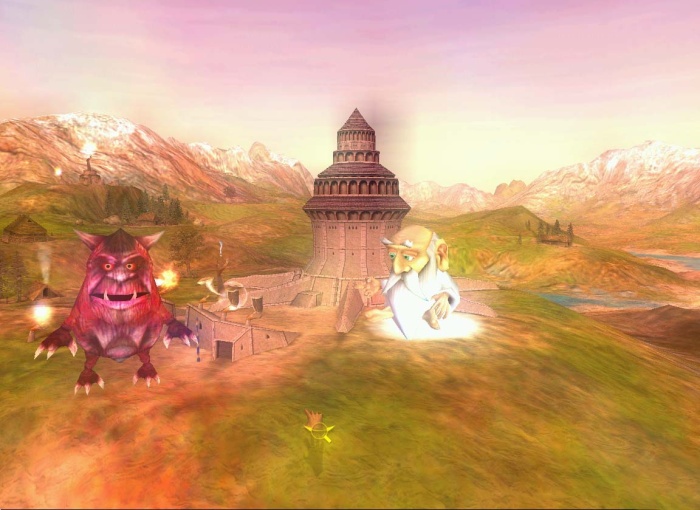 | The Black and White game for PC, 2001 |
However the mainstream continued and eventually the most popular series so far was launched – The Sims which was released in 2000 and which has led to the development of over forty spin-offs and is still going strong. As of March 2008 it was the best selling game franchise in history. To what does it owe its success? Its ordinariness! The Sims is basically a virtual "ordinary" world where you direct the lives of people who live in houses like yours, have jobs like yours, and even date, marry, have children, etc. Basically, then, it feeds on the thing we are most interested in: ourselves.
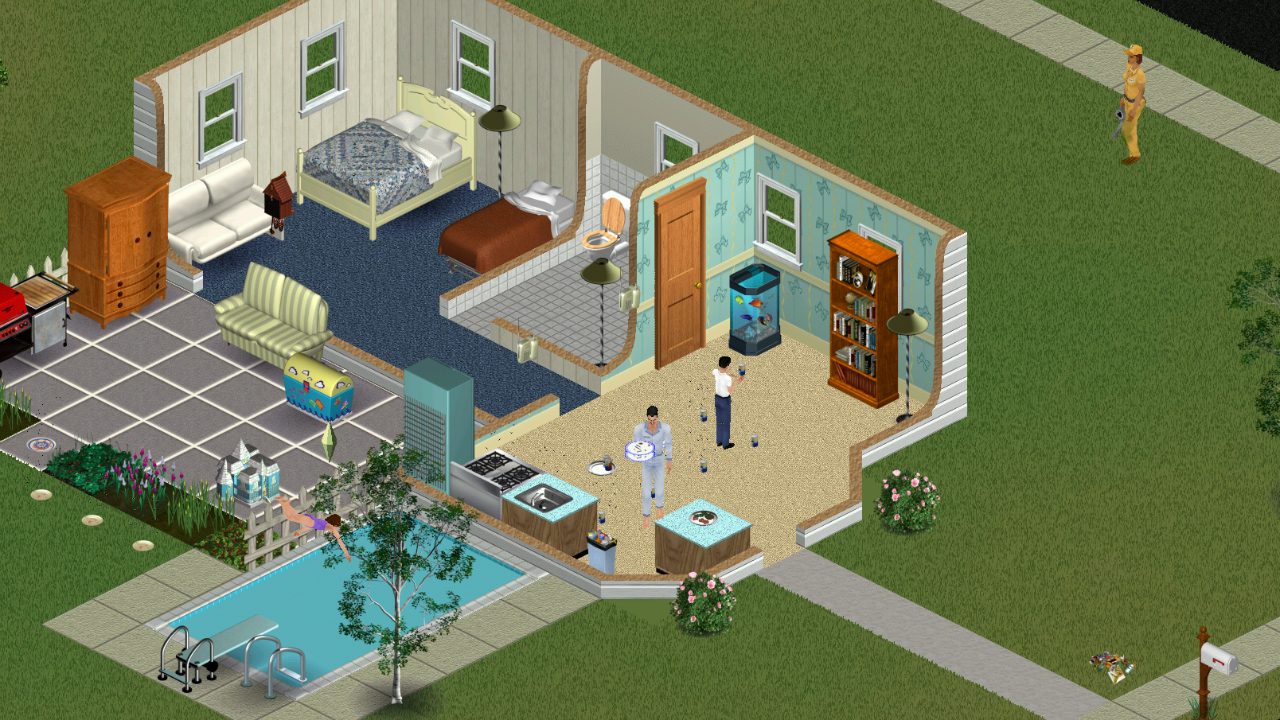 | The Sims game for PC, 2000 |
Although The Sims has now developed from its single player origins into multi-player versions it has not so far developed a virtual reality environment. After an abortive attempt in 2002 (The Sims Online) it closed down the project in 2008 after renaming it EA Land in 2007.
Possibly Sims Online was just that bit too soon, because in 2003 Linden Labs launched Second Life which has become the world's most popular online virtual reality world. It now has over 15 million registered accounts (this may not mean users as some people may have more than one account), and at peak times there can be up to 40,000 people online simultaneously.
Second Life is a virtual reality world that resembles our own in that there are people and buildings and land – cities and towns and parks. Cars and bikes and planes. You can "build" almost anything. It also has fantasy elements – your avatar (the computer representation of you) can fly, and you can design him, her or "it" to be non-human (e.g. look like a bird or a dragon, etc.). However like the real world, you can also trade and Second Life has its own currency, the Linden Dollar (which you can earn within the world, or purchase for real money).
Because it's a virtual world inhabited by real people (or at least their avatars), it shares the pros and cons of the real world. There is pornography, violence and fraud; but there is also genuinely improving endeavour ranging from educational (at least 300 universities around the world teach courses or conduct research in SL) through to commercial (being used for design, public opinion testing, etc.) and political (several countries now have SL embassies, including Sweden and Israel). There is a flourishing live sports and entertainment stream: artists such as Duran Duran and Suzanne Vega have held live concerts in SL and there are sporting leagues for football and racing cars (among others).
So where does this lead us in terms of new ways of working? Second Life (and its like: there are now several other virtual worlds) is not yet mainstream. In the UK about 36 million households have Internet connections, but only a few thousand are SL visitors. But it's an environment with many opportunities, and we're just at the beginning. So we have an opportunity to help it develop as well as to use it to help us. Here are just a few ideas that can be used for councils and the public sector:
- Get school children to design classrooms and schools (or collaborate with architects) and link this to Building Schools for the Future.
- Develop SL-based teaching: there is evidence to show that people react better in terms of distance learning within a virtual environment compared with a less personal one such as emails or online conferences.
- Hold SL Councillor surgeries.
- Hold events in parallel in real and SL, e.g. art exhibitions, musical concerts.
- Use SL to model new or improved environments in parks and housing (e.g. linked to Housing Market Renewal).
- Hold council meetings in SL with members of the (Oldham) public invited to watch and/or contribute.
Oldham Council (among others) has already started experimenting in SL, and there's an Oldham "island" – though not yet fully completed. This is exciting stuff – let's not ignore the opportunities it raises. And going back to the background on games: if there's anything to learn from the lessons of the popularity of The Sims and of environments like World of Warcraft, it's that people love this stuff. So you've already got them on your side just by the fact that being there is entertaining. In the final part of this short series I'll consider the implications of this a bit further.
 | Oldham in Second Life, 2008 |
No comments:
Post a Comment